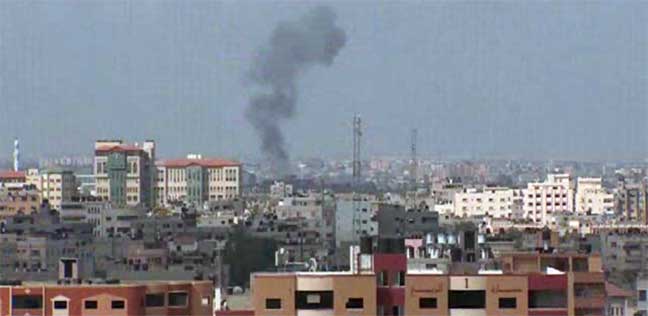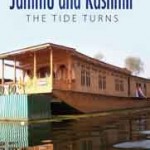IDR Blog
The current dynamics of Israel-Palestine conflict
As the tensions between Israel and the Palestinian were mounting high due to acrimonious past the recent skirmishes between both and the fallout of the recent attacks and murders have engulfed the entire region into a deep crisis. The ongoing Israeli air strikes on the Gaza Strip pose a serious challenge to the peace and security of this volatile region. The Palestinian paramilitary organisation, Hamas, has already vowed to avenge the “Israeli slaughter” and is preparing for a fresh onslaught.
The Palestinians always wanted to have full control of the West Bank and almost 90 per cent withdrawal of the Israeli Army.
At this juncture, it seems unlikely that Hamas can be persuaded to change its plans. In the past, it has attacked Israel. In 2005, it launched over 1,000 homemade Qassam rockets into Israeli territory. According to sources, Hamas can still strike with efficiency and its expertise has extended beyond conventional guerilla warfare. Israel should now prepare for countering new kinds of warfare, including chemical attacks, the sources add.
Hamas enjoys an immense advantage because of three factors: politically, the Palestinians want Israel to withdraw from the West Bank and Gaza Strip; militarily, Hamas has sufficient arms and well-trained members; and, last, at the local level, Hamas has been able to mobilise people ideologically.
The ongoing Israeli attacks have not only jeopardised the former US President George Bush-led Israeli-Palestinian Peace Accord of November 2007 but have also created serious concern among the security and military intelligence throughout the region. The conflict has caused heavy casualties on both sides. In 2005, more than 200 Palestinians died while 1,250 were injured. This rose to 1,289 and 6,290 by the end of 2007. Similarly, the casualties among Israelis rose from 48 dead and over 400 injured in 2005 to 86 dead and more than 1,100 injured in 2007.
Any effort to get international support — particularly from the Islamic countries by giving the struggle a common colour — can turn the region into a battlefield. The governments of Egypt and Syria have already denounced the Israeli air strikes.
The US and Israel have declared Hamas a terrorist organisation. The problem has been further compounded by the fact that Hamas does not recognise the right of Israel as a State and its claim over territory.
The violent attacks, some of which were retaliatory, suggest that the present crisis is deeply interwoven in the issue of separate national identities and the never-ending claim over a common piece of land. Gradually, both Israel and Palestine understood that they could only survive if a two-State solution was accepted.
The Oslo Peace Accord allowed the Palestinians to build an air and sea passage in the West Bank and Gaza Strip, with the then Palestinian President Yasser Arafat denouncing terrorism and the recognition of Palestine by Israeli Prime Minister Yitzhak Rabin. All this showed a ray of hope but nothing much came of these declarations. Earlier, Israel was keen to build around 30,000 houses for its citizens on the West Bank and Gaza Strip by 2020 but the Palestinians were vehemently against it. The Palestinians always wanted to have full control of the West Bank and almost 90 per cent withdrawal of the Israeli Army.
Palestinians always accused Israel of not abiding by the 34 commitments such as freeing of Palestinian prisoners, dismantling settlements in Jerusalem, free movement for Arabs from other countries and allowing free air and sea passage to Palestinians. The formation of the Palestinian National Authority (PNA) was a welcome step towards the restoration of peace and reconciliation in the war-torn area but the increasing number of attacks and conflict between the Fatah and Hamas members compelled the Palestinian Authority President to dissolve the Unity government and allow Hamas to take control of the Gaza Strip.
The existence of two separate governments in West Bank and the Gaza Strip has created many complications for the peace process. Soon after, in June 2007, Hamas members tried to dismantle the Fatah authority in Gaza. The very idea of control over the Gaza Strip did not go down well with Israel and the US.
Israel should also know that the best way to fight terrorism is to restore its old strategy of intelligence-gathering and isolating the terrorists from the mainstream by generating more public opinion.
Ever since the victory of Hamas in the Palestinian parliamentary elections in January 2006, Israel has made all efforts to isolate it. The US and Israel have declared Hamas a terrorist organisation. The problem has been further compounded by the fact that Hamas does not recognise the right of Israel as a State and its claim over territory. It is hard to say whether Israeli forces have the strategy and power to regenerate themselves against this unending warfare.
What really matters at this juncture, apart from the suffering of the troops and innocent people, is how a permanent link can be established between the two sides. But what we see today are extreme circumstances absolutely without any hope for reconciliation. Therefore, this requires careful handling of the situation.
Any further effort towards negotiations will have to address issues such as resolving the settlements dispute, maintaining security, the water issue, the problem of refugees and the status of Jerusalem. Israel should also know that the best way to fight terrorism is to restore its old strategy of intelligence-gathering and isolating the terrorists from the mainstream by generating more public opinion.
Post your Comment
One thought on “The current dynamics of Israel-Palestine conflict”
 Loading Comments
Loading Comments





In my personal views, I could not see any halt to this, as Hamas will not stop until they destroy Israel, they wont settle for anything less and that’s why all the time they have denied the truce offer. Like Israel is backed up by the US, Hamas is also getting ‘unconfirmed support’ by Al Quaida/Arab seperatist groups.